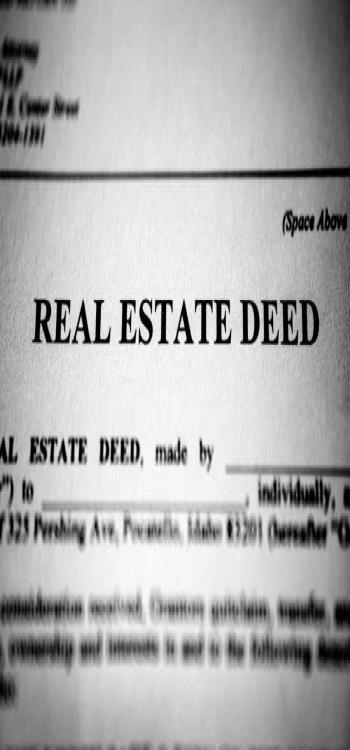Table of Contents
Quality Service Guarantee Or Painting Free

Get a rental agreement with doorstep delivery

Find the BEST deals and get unbelievable DISCOUNTS directly from builders!

5-Star rated painters, premium paints and services at the BEST PRICES!
Loved what you read? Share it with others!

Understanding Society Share Certificates in India: A Comprehensive Guide
Table of Contents
As a homeowner or real estate investor, you might have heard about society share certificates. But, do you know what they are and why they are important? In simple terms, society share certificates are documents issued by housing societies to their members, representing their share in society. They are an essential document for anyone who owns a flat or property in a housing society. As a homeowner or real estate investor, society share certificates hold significant value for you. They provide legal proof of your ownership and share in society. Without a society share certificate, it becomes difficult to prove your ownership and your rights in society.
The purpose of this blog is to help you understand society share certificates, their importance, and how to manage them effectively. We will discuss the issuance of society share certificates, the share certificate housing society format, society share certificate rules, and the process of transfer of share certificate of society in case of death. We will also delve into the legal perspective of society share certificates, the rights and obligations of share certificate holders, and common issues and solutions.
What is a society share certificate?

Apart from these basic details, the society may also include additional information on the share certificate such as the share transfer rules, the society bylaws, and the rights and obligations of the share certificate holders. It is essential to understand these rules and regulations as they are binding on all the society members and can have legal implications in case of any disputes. When a housing society share certificate in joint names is issued, both parties hold equal rights to the share.
Quality Service Guarantee Or Painting Free

Get a rental agreement with doorstep delivery

Find the BEST deals and get unbelievable DISCOUNTS directly from builders!

5-Star rated painters, premium paints and services at the BEST PRICES!
In some cases, the society may also issue duplicate share certificates in case of loss or damage of the original certificate. The process for obtaining a duplicate share certificate may vary from society to society, and it is advisable to consult the society's bylaws or seek legal assistance in case of any confusion.
What sets apart a Share Certificate from a Conveyance Deed?

While a share certificate and a conveyance deed might seem similar, they serve different purposes. A conveyance deed is a legal document that transfers ownership of property from the builder or developer to the housing society. On the other hand, a share certificate is a document issued by the society that certifies the ownership of shares in the society by its members.
One of the significant differences between a share certificate and a conveyance deed is that while a conveyance deed is a legal requirement mandated by law, a share certificate is not. However, a share certificate is essential as it serves as proof of ownership of shares in society. The share certificate is a valuable document that every member must possess as it not only establishes the member's ownership but also the member's voting rights and entitlement to dividends or profits from the society.
Another significant difference between a share certificate and a conveyance deed is the process of issuance. A conveyance deed requires stamp duty to be paid to the government, which varies from state to state. In contrast, a share certificate does not require any stamp duty payment. However, the society may charge a nominal fee for the issuance of a share certificate.
It is crucial to understand the difference between a share certificate and a conveyance deed to avoid any confusion regarding the ownership of the property or shares in society.
What is the purpose of a Share Certificate in India?

The primary purpose of a share certificate in India is to establish ownership of shares in a housing society. It is a legal document issued by the society to its members, certifying the number of shares held by the member of the society. It also establishes the member's voting rights and entitlement to dividends or profits from society.
The share certificate is an essential document for every member of society, and it is crucial to obtain it immediately after becoming a member of society. It serves as proof of ownership, which can be used to obtain loans, sell the shares or transfer ownership to another person.
In case of any dispute or conflict, the share certificate serves as evidence of the member's ownership of shares in society. It also helps in maintaining transparency and accountability in society's affairs, as every member can verify their shares' ownership and entitlements.
What are the essential steps to follow while issuing a Share Certificate?

Issuing a share certificate is a crucial process that must be done with utmost care and accuracy. The following are the essential steps to follow while issuing a share certificate:
- Verify the member's details: The society must verify the member's details, such as their name, address, and shareholding, before issuing the share certificate.
- Prepare the share certificate: The share certificate must be prepared in the prescribed format and signed by the authorized signatories.
- Record the share certificate: The society must maintain a record of the share certificate issued, including the member's name, shareholding, and the date of issuance.
- Deliver the share certificate: The share certificate must be delivered to the member in person or by registered post.
- Update the share register: The society must update its share register to reflect the issuance of the share certificate to the member.
Issuing a share certificate involves legal compliance and must be done in accordance with the laws and regulations governing housing societies in India. Let's learn about them in our next section.
A legal perspective on society share certificates

Rights and obligations of share certificate holders
As a society share certificate holder, you have certain rights and obligations that are defined by the society's bylaws and the applicable laws. These rights and obligations include:
- Right to attend and vote in society meetings: As a share certificate holder, you have the right to attend and vote in society meetings. You can voice your opinions and concerns and participate in the decision-making process of the society.
- Obligation to pay society maintenance charges: Share certificate holders are required to pay maintenance charges to the society on a regular basis. These charges are used for the upkeep and maintenance of the common areas and amenities of the society.
- Right to transfer of share certificate of society in case of death: The share certificate holders have the right to transfer their share certificate to another person subject to the society bylaws and the applicable laws.
- Obligation to comply with society bylaws: Share certificate holders are required to comply with the society bylaws and regulations and follow the rules and guidelines laid down by the society.
Importance of proper documentation
Proper documentation is essential when it comes to society share certificates. The share certificate is a legal document that establishes your ownership and share in society. It is important to ensure that the share certificate contains accurate and updated information.
In case of any changes such as a change in the name of the member, transfer of shares, or any other modifications, it is important to get the necessary documentation done and update the share certificate accordingly. Failure to do so can result in legal complications and disputes in the future.
Common issues and solutions
There can be various issues and disputes that may arise in connection with society share certificates. Some common issues include disputes over ownership, transfer of shares, and non-payment of maintenance charges.
It is important to seek legal assistance and follow the proper legal society share certificate transfer procedures to resolve these issues. In some cases, it may also be helpful to seek the services of a professional property management company like NoBroker, which can help manage the society share certificates and ensure compliance with the applicable laws and regulations.
How to transfer name in society share certificates?

Process of transfer of share certificate of society in case of death
In case of the death of a member, the society share certificate can be transferred to the legal heir of the deceased member. The legal heir needs to provide relevant legal documents such as a death certificate, a succession certificate, or a will to society. The society will then transfer the share certificate to the legal heir.
How to add name in society share certificate?
If you have recently got married or have had a new family member, you can add their name to the society share certificate. The process involves submitting the necessary documents such as a marriage certificate or a birth certificate to society.
Process of society share certificate transfer
If you are selling your property or flat, you need to transfer the share certificate of flat to the buyer. The process involves submitting a transfer request to the society along with relevant legal documents such as the sale deed and the no-objection certificate from the society.
How can you obtain a duplicate Share Certificate in India?
The loss of share certificate of housing society can happen to anyone. In case a member loses their share certificate or it gets damaged, they can obtain a duplicate share certificate by following the steps mentioned below:
- Lodge a complaint with the society: The first step to obtaining a duplicate share certificate is to lodge a complaint with the society. The member must inform the society about the loss or damage of the share certificate and request a duplicate certificate.
- Provide necessary documents: The member must provide necessary documents such as an FIR (in case of loss), an affidavit stating the reason for the loss, and a request letter for the issuance of a duplicate share certificate.
- Pay the requisite fee: The society may charge a nominal fee for the issuance of a duplicate share certificate. The member must pay the requisite fee to the society.
- Obtain a no-objection certificate: The society may ask the member to obtain a no-objection certificate from the bank if the share certificate was pledged as collateral for a loan.
- Verification process: Once the member provides all the necessary documents and pays the requisite fee, the society will initiate the verification process to confirm the member's ownership of the shares.
- Issue of duplicate share certificate: After verifying the documents, the society will issue a duplicate share certificate to the member.
It is important to note that the issuance of a duplicate share certificate involves a legal process and must be done in accordance with the laws and regulations governing housing societies in India. Also, it is essential to inform society immediately after losing the share certificate to avoid any unauthorized transfer of shares. The member should take necessary precautions to prevent the loss or damage of the share certificate by storing it in a safe place and avoiding unnecessary handling.
Simplify your property transactions with NoBroker: A hassle-free solution for Society Share Certificates and more.
Property share certificates are an essential aspect of owning property in a society in India. They are proof of ownership and play a crucial role in the transfer of ownership and pledge of shares. It is important for members of housing societies to understand the process of issuing and obtaining Society Share Certificates and to follow the necessary legal procedures to avoid any disputes or legal issues.
In addition, if you are looking to buy, rent, or sell a property in a gated society, NoBroker is the platform for you. NoBroker provides hassle-free property transactions without any brokerage fees, making it the most cost-effective option for property owners and seekers alike. The platform offers a wide range of properties and services that cater to the diverse needs of its users.
Moreover, NoBroker Legal services provide a convenient way for property owners to navigate the complexities of real estate laws, including the process of obtaining and issuing share certificates. With the help of NoBroker's legal experts, property owners can rest assured that their transactions are legally sound and free of any legal hassles.Overall, owning a property in a housing society in India can be a rewarding experience, but it comes with certain responsibilities and legal obligations. It is important to stay informed and updated about the regulations and processes related to housing societies to avoid any legal complications. And NoBroker is here to help you with all your property needs, providing you with a one-stop solution for all your real estate transactions and legal requirements. Click on this link to explore the wide span of NoBroker's property buying and selling services
FAQ's
A1. A society share certificate is a document that certifies ownership of shares in a cooperative society. It contains details such as the name of the shareholder, the number of shares held, and the nominal value of each share.
A2. A society share certificate can be issued by the cooperative society to its shareholders. The certificate should be signed by the authorized signatories of the society and should bear the common seal of the society.
A3. A society share certificate is important as it serves as proof of ownership of shares in a cooperative society. It can also be used as collateral for obtaining loans from banks and financial institutions.
A4. Yes, a society share certificate can be transferred from one person to another through a transfer deed. The transfer deed should be executed by the transferor and transferee and should be registered with the society. The society will then issue a new share certificate in the name of the transferee.
A5. To obtain a society share certificate, you should first become a member of the cooperative society by subscribing to its shares. Once you have become a member, you can apply for a share certificate by submitting an application for a share certificate from the society along with the required society registration documents and fees. The society will then issue the share certificate to you.
Recommended Reading

Franking Charges Explained: Meaning and Benefits
January 31, 2025
1115461+ views

Rectification Deed Format and Process in India 2025
June 1, 2025
128346+ views

Revenue Stamp in India: Meaning, Types, Uses, Legal Value & Where to Buy in 2025
January 31, 2025
127794+ views

How to Get a Stay Order in India: Step-by-Step Legal Process in 2025
May 31, 2025
92711+ views

Doctrine of Adverse Possession: What It Means and How to Claim Property Rights in 2025
May 28, 2025
89479+ views
Loved what you read? Share it with others!
Most Viewed Articles

Franking Charges Explained: Meaning and Benefits
January 31, 2025
1115461+ views

Society Maintenance Charges : Meaning, Cost, Types and Calculation
January 31, 2025
193525+ views

BBMP E-Khata Registration process for property owners in Bangalore, Karnataka in 2025
March 19, 2025
145603+ views

Daughter's Right in Fathers' Property - the Law is Finally Equal for both Genders?
June 1, 2025
133187+ views

Rectification Deed Format and Process in India 2025
June 1, 2025
128346+ views
Recent blogs in
How To Register a Rent Agreement Online In Gujarat: Process, Documents and Fees in 2026
January 19, 2026 by Ananth
What is Registered Lease Agreement: Meaning, Legal Validity, Benefits and Online Registration
January 19, 2026 by Krishnanunni H M
What Is a Room Rental Agreement: Meaning, Purpose and Importance in 2026
January 12, 2026 by Kruthi









 Full RM + FRM support
Full RM + FRM support
Join the conversation!